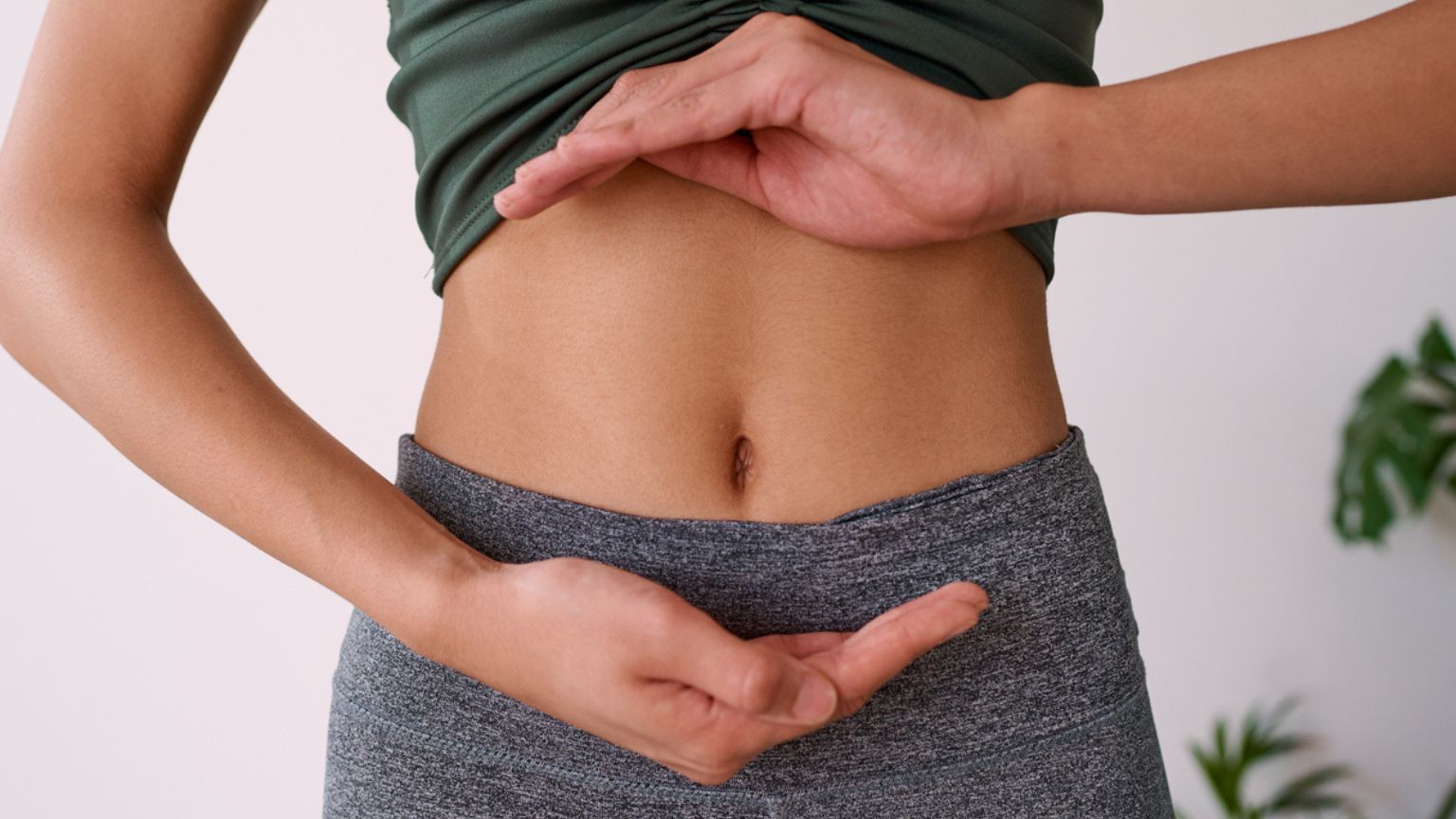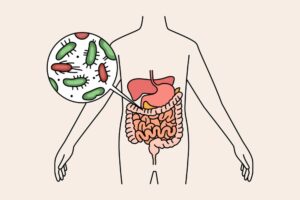Gut health and the microbiome – Nutritionist Rick Hay tells us everything we need to know about what a healthy gut looks like and how our gut is connected to our brain
Our gut is colonised by a complex ecosystem of trillions of microbes comprised of bacteria, viruses and fungi. This ecosystem is called the gut microbiome and in fact, we have more microbes in our microbiome than human cells in the body.
The gut microbiome plays a crucial role in our body. It supports the breakdown of the food we ingest, maintains the health of our immune system and may even help to improve mood and energy.
The gut gets colonised by many microbes at birth, and the composition of the gut microbiome is mostly dictated by what we eat but also by other factors, such as lifestyle, the medication we take, hygiene conditions and our level of exercise and of course, stress.
we have more microbes in our microbiome than human cells in the body
By choosing the right foods and having a balanced lifestyle we can influence the composition of our gut microbiome, and therefore positively affect our health and weight.
The PREDICT nutrition studies, carried out by three of the world’s top gut microbiome and nutrition scientists, Nicola Segata, Sarah Berry and Tim Spector, discovered new connections between the microbiome, diet and metabolism.
These include new links with 30 key microbial species that can be found in the gut and that could play a role in how we biologically respond to food.
The scientists were also able to discover positive and negative links between certain foods and these microbes – what you eat can positively affect your microbiome & metabolism.
READ MORE: 5 healthy chocolate alternatives for your never-ending sweet tooth
Good vs Bad Gut Bacteria
This particular study discovered 15 ‘good’ bacteria that are associated with improved health.
These microbes are associated with better metabolism, lower levels of the inflammatory marker GlycA, lower blood pressure, and better blood sugar control.
People who have a high abundance of these microbes tend to have better blood fat control (lower levels of triglycerides and ‘bad’ cholesterol), and less visceral (abdominal) fat mass.
The opposite effect was observed with the ‘bad’ bacteria. These microbes are associated with less favourable digestion, higher blood pressure, and poorer glycaemic responses.
People that live with a high abundance of these microbes have higher concentrations of inflammatory markers, higher levels of triglycerides and bad cholesterol, and greater abdominal fat mass which isn’t great for cardio vascular health.
READ MORE: 7 practical sleep tips your circadian rhythm will thank you for
The microbiome and the brain
The gut connects with the brain through chemicals like hormones and neurotransmitters that send specific messages.
The vagus nerve is an essential part of that brain–gut axis – it is the ‘information highway’ that delivers important information from the gut to the brain (and vice versa) and plays an important role in the maintenance of intestinal and energy homeostasis (a healthy microbiome). It is all about keeping our system steady and in the right balance so the speak.
When we digest food, the vagus nerve senses changes in the microbiome in our intestines and sends this information to the brain. The gut microbiome, viruses, fungi, and bacteria that live in the gut can affect these messages.
90 per cent of the feel good neurotransmitter, Serotonin, is produced in the digestive tract
The information highway works both ways, a troubled gut can send warning signals to the brain, just as a troubled brain can send warning signals to the gut. Intestinal distress can lead to physical, emotional and mental issues, poor sleep and even to depression.
A healthy gut microbiome doesn’t just call for healthy food choices but a more holistic approach to health, reducing stress, light and noise pollution, and making sure our media and social media intake doesn’t leave us high and dry.
You may be surprised to hear that up to 90 per cent of the feel good neurotransmitter, Serotonin, is produced in the digestive tract.
Healthy gut = healthy mind. If your gut microbiome is in good health you may find yourself feeling that little bit happier, and a happy you may be more relaxed and experience better sleep.
READ MORE: The Mayr Method Diet – Healthista tries Rebel Wilson approved detox at Park Igls Medical Spa
Music for your gut
Believe it or not, new evidence also shows that the sounds you hear before, during, and after a meal affect your microbiome and the way your body processes food.
This is due to the gut-brain axis affecting the parasympathetic nervous system, which oversees different bodily functions, including digestion.
Music can affect microbial growth and metabolism
Music can affect microbial growth and metabolism, suggesting a microbial response to the sound waves. Listening to music has been correlated with higher levels of microbiome diversity and increased strains of healthy bacteria in our gut.
The powerful and bidirectional gut-brain access, connected via the vagus nerve, means stress can negatively impact the gut, cortisol levels and digestive symptoms.
Reducing stress levels through music may have a profound effect on your gut health.
So how can you tell if your gut is healthy? And what can we do to ensure a healthy microbiome? Come back next week for Gut Health & The Microbiome: The Nutritionist’s Guide – Part TWO
Rick Hay is an Anti-Ageing and Fitness Nutritionist with many years clinical experience in nutrition, naturopathy, botanical medicine and iridology.
He specializes in obesity treatment and weight management. He writes a regular Natural Health and Fitness Blog for Healthista.
Find out more at rickhay.co.uk.
Follow Rick on Twitter @rickhayuk
HEALTHISTA’S ANSWER TO MENOPAUSE; MENOSTART: PRESS PLAY, NOT PAUSE.
The Healthista Menopause Pack is a fully comprehensive online video workshop, led by Dr Dawn Harper; affordable, accessible and covering all aspects of the menopause, for those who need it most.
With expert advice and information from seven credible menopause industry experts, we hope that this online resource will help women navigate common health and wellness changes and challenges they may experience before, after and during the menopause.
Like this article? Sign up to our newsletter to get more articles like this delivered straight to your inbox.























































